Dirt is Good
The American obsession with a germ-free environment may be one reason our rates of allergies, asthma and digestive issues have sky-rocketed. Seem counter-intuitive? Dig in and see what some top scientists have to say.
- story by Christina Richardson
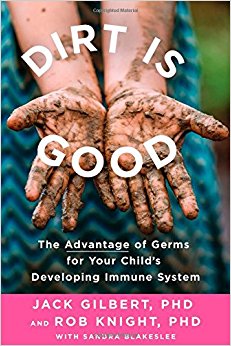
Jack Gilbert is the faculty director of the Microbiome Center and a professor in the department of surgery at the University of Chicago, founder of the Earth Microbiome Project and co-founder of the American Gut Project.
According to research on the subject, “From birth to age three, your child’s microbiome, especially in the gut, is extremely dynamic.” By age three the adult levels will be in place and everything you need is there. “There they stay, fending off pathogens, breaking down fibers, tuning the immune system and even influencing mental health.” Why is dirt good? Claire Fraser-Liggott, Ph.D., a professor at the University of Maryland, made a good case for dirt in a TEDxMidAtlantic talk. Fraser-Liggott says that we are not alone, and by that I mean in our own bodies. We are a little planet, a microbial ecosystem with hundreds of trillions of microbes living with us. “If you go back to fundamental principles of ecology, we know that high diversity ecosystems are more stable and resilient.” (9:22 in the Claire Fraser’s TED Talk video). Lacking that in our bodies, we are more prone to allergies, food allergies, and asthma.
Dr. Fraser-Liggott helped launch the field of microbial genomics and is with the Institute for Genome Sciences. It is the purpose of this effort to lay the foundation for new approaches to personalized medicine.
One of the studies has an ick factor, so bear with me: Many people who have compromised microbe colonies due to antibiotic use or other factors are prone to problems with their digestive tracts and have diarrhea that is difficult to treat. Fecal transplants have been very successful in treating these disorders. And yes, that means taking fecal material from a person with healthy microbes and planting them in the intestinal tract of the patient. Dr. Fraser-Liggott states that the cure rate is 95 percent for those patients that had a “re-poopulating of the gut.” Her words, not mine. If you want to be a part of the study go to americangut.org. There is a kit to order so you can send in your own sample and get back information on how you are getting along with your microbes. There are five recommendations that seem to be consistent with all the studies I have reviewed as to why it is good to expose your children to getting dirty.
Another aspect of connecting with the great outdoors is explored in a book by Richard Louv. Last Child in the Woods: Saving Our Children from Nature Deficit Disorder is a story about the disconnect humans have with natural areas.
The premise is that this lack of connection to nature contributes to obesity, distraction and depression. The book offers suggestions on how to develop an environment-based education program that enhances problem solving, critical thinking and decision-making skills. And as for those questions in the first paragraph? According to these physicians and scientists, it may even be beneficial to lick off that pacifier; wash with warm soapy water instead of using anti-bacterial; if you are in a safe area like your home, pick up and eat the dropped food item; and let the dog lick away. In the Eye of the Beholder
One of the South's beloved writers, Rheta Grimsley Johnson, takes a fresh look at her Iuka homestead through the eyes of good friends.
Find out more about Rheta's books at RhetasBooks.com. Rheta's new gallery/shop, Faraway Places, is located at 102 West Front Street, Iuka, Mississippi. You can also look for it on Facebook!
I’m not being falsely modest here. I love my place in this dark hollow the way a parent loves her child, but it has – and always will have – rough edges. I see this most clearly in the days leading up to special company.
I do my best to stage it for visitors. I cut and clean and hide and polish. I even wash windows. But minutes before the scheduled arrivals, I take a look around and see the truth. The yard is a yard, not a lawn, and it looks good for approximately half a day after mowing. Then the briars and the weeds and the gum balls begin to compete for attention, and visitors realize the endless river of green they first glimpsed is hopelessly polluted. It’s not a space for playing croquet, but more like a practice field for teaching youngsters how to drive a pickup with a straight shift. The “house” really is a collection of two small cabins, one bedroom and one bath respectively, made less claustrophobic with a screened porch tacked on each. You better like your hosts and those with whom you travel when you land here. And don’t think quaint. There is none of the “cottage charm” that Bay St. Louis residents take for granted, but instead a 1950s look with low ceilings, thin floors, inherited furniture and too much sentimental swag. Clutter is clutter is clutter.
But this is a story of redemption, so stick with me. My sister-in-law from another life used to say that we, the permanent residents, eventually are the last not to see the worst things about our own abodes. We’ve grown used to the problems and no longer notice the wavy Sheetrock and rotten eaves. That’s not true, not this summer. I see it all.
As I sit wondering what the latest guests must think, they tell me. A visitor cries out, and I think she must have slipped on the mildew-covered walkway between the cabins, something I’ve done myself. “Look, look,” she says, pointing. One of last night’s crop of luna moths is sticking around. They routinely beat against the wickedly irregular windows in the back room, drawn to the light. Together we study the moth’s green velvet wings.
That night the visitors see the stars in a sky uncluttered with ambient light. They remark on the lightning bugs and rhapsodize over the lack of traffic. They hear the whip-poor-wills and owls and frogs. They notice things I take for granted. But good things.
The next day I take them to the old pontoon boat that floats in a nearby Pickwick Lake marina. Earlier in the season I’d wrapped the cracked vinyl seats like big birthday gifts with a few yards of sale cloth in a color that matched nothing else on the boat. “Oh, what magnificent spider webs,” one visitor says, just as I am about to knock the webs down with a broom I keep aboard for that purpose.
I drive most guests to the late Tom Hendrix’s wall in nearby Florence, Ala. He spent a quarter of a century building a mile-long wall from eight million pounds of river rock he harvested and hauled himself. The wall honors his Native American great-great grandmother’s five-year trek home from Oklahoma after her forced march on the Trail of Tears.
In a world where people like lively entertainment, a rock wall is a quiet anomaly. But my visitors get it. We picnic on the Tennessee River along the Natchez Trace. The breeze is constant, the conversation lively. And suddenly I’m proud of where I spend half of each year, half of my life. Domestic imperfections seem inconsequential, dwelling on them silly. If you invite the right people, if you have the right friends, gracious living is a given.
Celebrate the summer's end at the August Second Saturday, August 12th. You'll find cool deals, fresh meals and lots of art and live music. It's the way we throw a family-friendly party here in the Bay and you're invited!
Make sure to visit Hot Spot businesses Antique Maison Ulman (317 Ulman Ave.) and The Shoe Boutique (inside Maggie May’s Art and Gift Gallery, 126 Main Street). - by Tracy Shields
Click here and scroll down to read archived Second Saturday columns
Antique Maison Ulman
317 Ulman Ave. Bay St Louis 228-344-3128
Sylvia and Ed Young opened this branch of Antique Maison on historic Ulman Avenue, only a minute away from their Second Street location, in 2014. Not to be outdone, this Ulman store focuses on home, garden, patio décor, and shabby chic furnishings for your whole house. Visit booths from various dealers, and enjoy an open floor plan with three large showrooms and a Quonset hut with lots of wandering room and treasures to be found. Right now you will even find a large furniture sale.
Discover a hidden treasure in the very back—Bay St Louis’s own English tearoom. Its vintage china and floral tablecloths set the scene for tea, made-from-scratch scones, and a decadent variety of desserts Tuesday through Saturday, 10 a.m.-3 p.m. Choose from large dining room, deck/garden dining area, and a private dining area to host parties, bridal showers and all the special occasions that happen in your life. Antique Maison Ulman Tearoom offers 13 hot and cold teas, soft drinks, and iced or hot coffee. They also offer High Tea Windsor by appointments. Stop by this second Saturday for the dedication of the historical tree in their garden. “Heavenly Tea Garden” will be dedicated by a St. Augustine Seminary priest at 5 p.m. on August 12.
The Shoe Boutique
inside Maggie May’s Art and Gift Gallery 126 Main Street Bay St Louis 228-467-7750
Someone said, “Give a girl the right shoes, and she can conquer the world.” The Shoe Boutique may not be the largest shop in Old Town, but it just may be the best place to find the perfect ladies’ shoes in Bay St. Louis. This shop is slipped away in the sunny front window at Maggie May’s Art and Gift Gallery at 126 Main.
Owners Bill and Joyce Whitfield have been retailers on the Gulf Coast since 1984, when they bought a store in Gulfport. They have been selling shoes here in Bay St. Louis for over 15 years. At its current Old Town Bay St. Louis location since February 2015, the store displays a large variety of styles and sizes of women’s shoes. Brands include Lucky Brand, Aerosoles, Volatile, Yellow Box, and Van Eli. The Shoe Boutique offers the individual and attentive service that shoppers love. Joyce stocks each shoe with style, comfort and affordability in mind. One can never take too much care with what they put on their feet, and at the Shoe Boutique, the shoes are selected to be as comfortable as they are stunning. Cinderella is proof that a good pair of shoes can change your life. Something For Everyone
Martha Whitney Butler's primer for antique shopping defines shops, malls and consignment places - and gives invaluable etiquette tips for bargain hunters.
Antique Mall vs. Consignment Shop
One of the biggest misconceptions I encounter at the French Potager is people thinking we are a consignment store. A consignment business takes individual items based on an agreed-upon percentage that the store takes upon selling that item.
The agreement is between the consignee (store owner) and the consignor. This is a common type of business for items such as designer clothing and formalwear. Some antique malls adopt this method for items like artwork or high-end furniture, based on availability and space. An antique mall rents spaces or booths to individual dealers for a monthly fee and a percentage of sales: the dealer displays items, and the shopkeeper takes a very small percentage for selling them. This is the most prevalent type of business in our community, giving us a healthy variety of goods.
Booths and Dealers
Dealers are the people who rent the booths or spaces within an antique mall. Most are experienced, seasoned entrepreneurs who rent space and flip items as a hobby or business. They often have day jobs, are retired, or use booths in other towns as satellite locations for their brick-and-mortar stores.
Dealers often spend countless hours at auction; they are the early birds getting all the proverbial worms at the best estate sales, and they take exhaustive trips around the country (or world) to seek out objects of interest for their clientele. It's back-breaking labor to lift furniture, rehab pieces, and haul items from place to place. Considering all the dilapidated structures I've climbed into, the snakes and bees I've encountered, the things I've toted for miles and miles on cobblestone streets in Europe, and the paint fumes I've inhaled, you might understand my urge to cringe a little when someone asks if I'd take less than the price marked for a particular treasure. Often I oblige, because I want nothing more than to do it all again. The thrill of the find is unsurpassed by everything except for the thrill of the sale. Knowing that you can relay the provenance of an item to someone else and they will appreciate it and cherish it is the highlight of this business.
Death and Taxes
I recently read an article about the dying world of antiques – how millennials aren't receptive to the concept or appreciative of the old.
I'm a millennial. I own an antique store. Enough said. That brings me to the “taxes” portion of this segment. I often hear, “If I give you cash, could you not charge me taxes?” If you do this, be prepared for a long-winded speech about streetlights, potholes, and education! The answer is no. Unless you are buying the item solely for resale purposes, and have what is called a resale certificate, you have to pay sales tax.
Evolution of the Antique Mall
Fun, funky, brimming with personality, and serving a broader range of clientele, the shops
in Bay St. Louis cater to both locals and visitors. Don't worry, we still sell vintage and antique items, but we would also like to stay alive. Which brings me to my point: we've evolved our business to sustain the desires of our customers. We might not be all antiques anymore, but don't be put off by new items for sale in our stores. Variety is the key in our business, and Antique Maison’s motto says it best: “Something for everyone.”
Haggling
There's a thrill in it! I understand, trust me.
But there's a right way to haggle and a wrong way. This could be another article in itself, but I'll graze over it here. Malls have different dealers, and thus different prices and personalities. Some dealers will deal, and some won't. The shopkeeper knows which ones will and which ones won't, and they often know who will discount at a certain percentage. Please don't shoot the messenger when she tells you that dealer won't come down off the price! The best time to haggle is when you buy several items from one particular dealer. Also, a little kindness and understanding goes a long way. If you come in for the second time to visit a $350 piece of furniture that you absolutely adore, I would love nothing more than for you to have it – discount approved! Dealers are usually not willing to deal on items under $50-$100, so picking up a bottle opener that's $5 and offering $2 seems out of place. Be reasonable, be kind, and put yourself in our shoes when playing “let's make a deal.” Also, have an offer in mind and make it. We applaud decisiveness in these stores. I hope this article helps you to understand some aspects of how antiques malls work. It's not traditional, and it may seem odd to walk into an antique shop like the French Potager and find a florist in the back! The booths in these malls provide so much more than gifts, goods, and furniture. They're hobbies for retirees, attractions to tourist towns for antique-lovers, and one of them might even belong to a 16-year-old, hustling entrepreneur who dreams of opening her own shop one day - like I did! Are you interested in opening your own booth? Some shops around town currently have waiting lists or openings, so be sure to inquire! Celebrating Excellence
Hancock County's most popular business event of the year is also one of the most fun: the annual Salute to Business and Industry Awards Gala.
- story by Ellis Anderson
The business and industry award-winners are lauded in short, well-edited videos shown on large screens. The year’s ten Outstanding Citizens are introduced in another video, leading up to the hold-your-breath moment when one of the ten is named Citizen of the Year.
The gala’s been called the local version of the academy awards, because of this suspenseful finale. But a few behind the scenes changes makes the announcement even more meaningful. Beginning in 2016, the individual business winners (Bay St. Louis, Diamondhead, Waveland and Hancock County/Kiln), as well as the Citizen of the Year, are chosen by polling members of the Hancock Chamber. Organizers say that since the winners are selected by votes instead of a committee, it reflects the will of the membership.
While the business winners and the Outstanding Citizens are announced in June with much fanfare, the Citizen of the Year selection is held close to the vest. Even chamber members have to wait until the announcement at the gala to find out the winner’s name.
Individual tickets to the event are $75 and tables are available with event sponsorships. They can be purchased online.
The 2017 business honorees:
The ten 2017 Outstanding Citizens were chosen from a field of 18 nominees.
Here's a video of the 2017 Outstanding Citizens - congrats again!
Coastal Camping
Tour some of Hancock County's favorite campgrounds, offering everything from primitive tent camping in serene settings to a beachside getaway with a waterpark.
- story by LB Kovac, photos by Ellis Anderson
Buccaneer State Park
1150 S. Beach Blvd. Waveland, MS 228-467-3822
Buccaneer State Park is consistently ranked one of the best campgrounds in Mississippi. The park’s popularity is in no-doubt thanks to its many amenities: a fully-stocked camp store; two large, lifeguard-protected pools; a full waterpark complete with slides, a wave pool, and a splash pad; a coin-operated laundry room; and a long nature trail that takes you through some of Mississippi’s less-developed areas. Indeed, Buccaneer State Park has a little something for everyone.
The campground itself has over 200 campsites, both back-up and pull-thru spots. Campsites come with options for 30- and 50-amp connections, as well as Wi-Fi, cable, and a parking spot. There are dedicated primitive sites in the back of the campground for campers looking to pitch a tent. These sites don’t have fire circles or picnic tables, but they are spacious enough for multiple tents or extra equipment. The best thing about the park, though, is its proximity to the gulf. Located on Beach Boulevard in Waveland, the Gulf of Mexico is quite literally across the street. If you know your travel plans ahead of time, you can reserve one of the park’s premium gulf-view spots, which give you amazing sunset views from the comfort of your camper. And white-sand beaches are just a short walk away! The tradeoff for staying at such a big park is a bit of noise. There are dedicated quiet hours at Buccaneer State Park, but there are lots of campers, including families with young children, and some noise can't be helped.
McLeod Water Park Campground
8100 Texas Flat Rd. Kiln, MS 228-467-1894
If you see your visit to Hancock County as less splashing in the pool and more communing with nature, pull your camper around to McLeod Water Park Campground. Located on the banks of the Jourdan River, McLeod offers a sportsman’s paradise, with two boat ramps; plenty of water for swimming, boating, kayaking, and fishing; and two scenic nature trails.
McLeod has about 50 campsites, with back-up and pull-thru sites available. Each site comes with a parking spot and picnic table, and slide-out campers can be accommodated. There’s also an on-site bathhouse with showers, a splash pad for the kids, and a playground. Despite this campground’s seclusion, there’s still easy access to downtown Hancock County’s conveniences. Hollywood Casino, downtown Bay St. Louis, and Mississippi’s coastline are each just a 20-minute drive away.
Bay Hideaway RV Park and Campground
8360 Lakeshore Dr. Bay St. Louis, MS 228-466-0959
Bay Hideaway was recently voted #1 Favorite RV Park in America during a Woodall’s competition. And if you know anything about the campgrounds, it’s easy to see why it is so well liked. In addition to the amenities offered by many other Hancock Country campgrounds — 30- and 50-amp sites, a swimming pool, and a lounge area with games, books, and movies — Bay Hideaway offers a little bit extra.
The campground park has a disc golf course for enthusiasts, the laundry rooms are free, and the staff have lots of recommendations for local eateries, bars, and family activities. During special holidays, there are free cookouts for the whole campground. This campground is just three miles from the beach, and it’s even closer to several casinos. There are also plenty of restaurants and bars in downtown Bay St. Louis.
Shady Acres
8012 Highway 90 Bay Saint Louis, MS 228-463-9670
For the seasonal camper, Shady Acres RV and Cottage Community presents a calm, relaxing atmosphere with all of the amenities you need, at affordable rates. Owners Bill and Julie Berry have created a perfect base for people who are enjoying the Hancock County area during a long-term stay. In addition to spacious spots with parking for two vehicles, Shady Acres features landscaped gardens, a private fishing pond, and a pet playground. There’s even a clubhouse with large television, a library, and plenty of board games: bad weather doesn’t have to sideline your relaxation.
This campground is centrally located for those who want to enjoy all of Hancock County’s features. Silver Slipper Casino, Hollywood Casino, the Stennis Space Center, and white sand beaches are all within a ten-minute drive. Be aware that this campground only rents by the month. If you’re in Hancock County for a shorter stay, you might want to look at one of the other facilities. These are just a few of the campgrounds in Hancock Country. Whether you’re just visiting the area or looking to call it home for a little while, there’s a campground just for you. Free Willy Gone Wrong
An impulse to save a crafty crab ends well for the creature, but its rescuer has reason to wish she'd eaten it instead.
- story and photos by Ellis Anderson
Waveland Alderman Jeremy Burke reports on the Mississippi Municipal League conference, a Touch-a-Truck Community Awareness event, the city's new website and Team Waveland participating in Relay for Life.
I was also able to complete the advanced level certification and move to the professional development level portion of the program.
Although the certification course is voluntary, receipt of the designation of Certified Municipal Official requires completion of core courses: Municipal Organization, Municipal Law, Municipal Finance, Municipal Land Use and Community Development. The CMO program provides the participants training to become more effective leaders for Waveland. Established in 1931, MML represents 295 city, town, and village governments in Mississippi. The mission of the MML is helping cities and towns excel through training, lobbying at the state and federal level, and providing resources and networking opportunities with state, federal and private entities. For more information about the Mississippi Municipal League, visit www.mmlonline.com.
Waveland Community Awareness Day
Waveland Website
The city of Waveland website has a new look. Waveland-based Lime Pi Digital is building and will maintain the site. The last update I received was that Lime Pi is putting the final touches on the site, and it should go online in early August. More content will be added over the next several months, including a feature that will make reporting an issue to Waveland quicker and easier.
Team Waveland
City of Waveland will have a booth at the Relay for Life event on Saturday, August 5. If you would like to volunteer to help at the booth or purchase a purple ribbon that goes towards Waveland fundraising efforts, please contact April Depreo at 228.202.5308.
Hancock Medical Center
One of the most glamorous nights in Hancock County - Moonlight On the Bay - provides more than a stellar evening of entertainment. This benefit for the Hancock Medical Center Foundation helps save lives every year.
- by Ellis Anderson
Last year, Empson contracted a rare case of vibrio bacterial infection. The Baton Rouge resident went to the Hancock Medical emergency room, where his life was saved by an emergency amputation performed by Dr. Anthony.
By the time Empson - two-time cancer survivor - arrived at the hospital, his chances for survival were extremely low. He and his family credit the quick action of Anthony and the HMC staff for saving his life.
One of the most popular parts of the event is the legendary silent auction. Carlton says local businesses contribute items that range from an autographed Saints football to fine artwork, from jewelry to spa packages (click here for a donation form).
“We always have lots hotel stays and casino packages and restaurant certificates,” says Carlton. “We always have so many items, thanks to the generosity of our local businesses and patrons.” Money raised by past Moonlight On the Bay events has been used to help fund the lifesaving Telestroke Program, fetal monitoring systems, mobile ultrasounds, mammography assistance for the uninsured, the Joseph Lee M.D. operating room suite and much more (click here to read more). Carlson says dress for the event is black-tie optional with some attendees opting for tuxedos or formals and others dressing in business attire. For more information or to reserve seating, call Carlton at (228) 467-8790.
Videos featured at past Moonlight on the Bay galas
Jaimee Dorris
Get to know the very savvy businesswoman behind the glitter, the tutus, and the multiple tiaras - a design diva who never stops evolving.
- story by Trish McAlvain
Most know her as the hostess of her own series, the internet sensation “MS Congeniality.” Jaimee started “MS Congeniality” with a mission to defy the image of the typical Mississippian. Every Wednesday another webisode is released. It is a fresh, spunky spin of life in the state, always filmed live with Jaimee interviewing fascinating people living and doing cool things.
In 2017, Mississippi celebrates 200 years of statehood. Jaimee is the face of "Miss Issippi" as Mississippi Bicentennial Hostess. Miss Issippi was a character drawn up in 1917 to represent Mississippi during the state's 100th birthday celebration. Although the centennial festivities were ultimately canceled because of the First World War, Miss Issippi still paraded around the state in costume.
When state bicentennial historians gathered to speak of the mascot chosen 100 years ago, it was decided to have an updated version. Who better to fill those shoes than MS Congeniality? Everyone agreed that Jaimee was the perfect choice. Jaimee hopes to always be completely approachable to the public in her role as Miss Issippi. "Ask me anything, I'll tell the truth. I hope I don't intimidate you.
She comes by her titles naturally. Jaimee was born in Bay St. Louis to Dottie and Daniel Goad, who are celebrating 43 years of marriage and who still reside on the coast. Her mother has always been a stay-at-home mom, while her father is a NASA rocket scientist. When she was young, Daniel instilled the importance of education when he would often stay up late teaching her chemistry and physics.
Dottie’s love of painting brought the artsy side to the mix. This mixture of science and art makes Jaimee a one-of-a-kind artist with an analytical style of thinking. She says she uses her brain to make decisions, not her heart. Jaimee spent two years studying organic chemistry in college and made straight A's. However, she was never concerned with exact numbers enough to see this being her profession. She was the student who was a little too theatrical during class and had thoughts of something else in her future. Her sister Michelle lives in Hawaii. She is Jaimee's best friend, and is a graphic designer and a wonderful belly dancer. Brother Gary Goad is a well-known local electrician here on the Gulf Coast.
As part of the graduating class of 1999 at Long Beach High School, Jaimee always enjoyed seeking the spotlight, first as a cheerleader and a singer. As a high school participant in the international exchange program in 1998, she traveled to Brazil. All she learned abroad helped to broaden her dynamics. Jaimee says, “In spirit, everyone knew me as Miss Brazil."
Jaimee has drawn strength from her husband Joel who has helped her appreciate the "typical Mississippian." Joel helped her to see that "we judge ourselves on how others judge us," she says. This Hancock county couple lives by the simple belief that it is most important to pride ourselves on our strengths. "He is a fishing bayou rat," says Jaimee when she speaks fondly of her husband. “It took me 30 years to appreciate the ‘good ol' boy’-style man. Learning that who cares what people think? It's about how you feel." "Joel knows how to treat me; he is a Southern gentleman, a provider for his family; he hustles as a businessman, and is an overall hard worker with strengths of the manly Mississippi man.” This is symbolic to Jaimee and instills state pride in her adventures and portrayal as Miss Issippi and MS Congeniality.
This busy couple are both in their thirties and are successful local business owners. Jaimee is celebrating a 10-year anniversary of Jaimee Designs Web Studio, located in Bay St. Louis. Joel has over 13 years invested in his local commercial and residential electrician business as contractor/owner of Dorris Electric Services of Bay St Louis.
Jaimee has been a member of the Rotary Club since 2013. She enjoyed helping fellow Rotarians to get the International Youth Exchange off the ground for Hancock County. Jaimee is fond of the program, knowing the attributes it created in her own experiences as an exchange student. "I work for myself to give time for a clean, peaceful overall feeling for my family." Joel and Jaimee Dorris are celebrating their three-year wedding anniversary. They stay active with five children, ranging from ages 10 to 21 with Joel's kids from a previous marriage and Jaimee's biological son Micah (who can be spotted as boom mic operator and assistant in “MS Congeniality”).
"I want to be that 90-year-old lady who is comfortable with me—always subject to change, to be even more fabulous!" Constant change is a significant happening within Jaimee's life. "One day I'm eating meat; then one day I'm a vegetarian. That adds to my art element." This year she is excited to see a major transition bridging the family businesses together.
Jaimee is eager to share and lives by her own advice. "Each person's mission is different than everyone else. Inspired ideas are most important. The thing is to listen to your intuition. Oftentimes you must find your own way by listening to yourself. "Everyone has their own path. Get to know yourself, what you do well. Sometimes, it is something special. Always trust who you are, naturally." Dempsey's Restaurant
True to its roots while open to the interesting and new, Dempsey’s lures diners from near and far home to the Kiln.
– Story and photos by Lisa Monti, photos by Ellis Anderson
The multiple choices listed under appetizers, seafood, steaks, and chicken present a happy dilemma for diners, especially on a first visit. But for Dempsey’s regular customers — and there are many of them — it’s easy to fall back on their favorites: the abundant platter for two (gumbo, stuffed crab, shrimp, oysters, redfish, catfish and crawfish pies), the charbroiled oysters (Dempsey’s specialty), the famous shrimp and grits, or fresh grilled fish.
“It’s the same menu, but it’s grown at each place,” she said. “We even added Sunday brunch.”
Diane was following in her restaurateur father Andrew Marino’s footsteps in 2003 when she opened Dempsey’s on Coleman Avenue in Waveland “two years and two weeks before the storm hit.”
His restaurant, Jack Dempsey’s, operated on Poland Avenue in the Ninth Ward of New Orleans for 36 years. After Katrina, Hennessy operated her restaurant for four years on Lower Bay Road in Lakeshore, and six years ago Dempsey’s moved to its current location on Kiln-Delisle Road. Wherever the location, customers have followed. There are locals, out-of-towners, and out-of-state travelers who fill the dining room for lunch and pack the place for dinner. “It’s very busy, especially on weekends,” Hennessy said. To keep things rolling along, Dempsey’s has an efficient, friendly staff of about 40. During a recent busy lunch service, several waitstaff joined around a table to sing “Happy Birthday” to a regular customer. At a nearby table, another server artfully handled a table of seven who wanted separate checks.
But back to the food. It’s New Orleans style — stuffed artichokes, frog legs, seafood platters — and plentiful and handsomely presented on each plate.
For our lunch, the seafood gumbo was rich, the fried shrimp poboy on chewy Leidenheimer French bread was wonderful, the tasty eggplant fries were crunchy and somehow oil-free, and the two large grilled redfish fillets were seasoned perfectly. The shrimp and grits topped with creamy Swamp sauce was something to behold and savor. “It’s how my dad always did it,” Hennessy said. “He always said people eat with their eyes. I’m following in his footsteps.” Hennessy’s kitchen prepares everything in house, including the rich seafood Swamp Sauce that tops the fried grit cake on the top-selling shrimp and grits entree. “Nothing goes out of the kitchen that’s store bought. I take pride in the food and want it to taste delicious,” Hennessy said.
And while the menu is biased toward seafood, the Angus steaks don’t take a back seat at Dempsey’s. In fact, Hennessy said, the restaurant earned second place among Mississippi steakhouses in a magazine poll.
If the menu wasn’t packed enough, a chalkboard in the center of the dining room announces some delicious new treats: steamed seafood including Royal Reds, Dungeness and snow crabs, and — a rarity in Hancock County — escargot, a favorite of Diane’s. “I like to cook things you can’t get anywhere else,” she said. Dempsey’s has 120 seats in the large dining room and bar area, but the place usually fills up with families and groups so reservations are a good way to get around wait time, which can stretch out to an hour at night. And if the food weren’t enough to attract people to the Kiln, Dempsey’s hosts an annual Cruisin’ the Coast party. This year it’s on September 30 and will feature popular New Orleans performer Harvey Jesus. |
Categories
All
Archives
July 2024
|
Shoofly Magazine Partners
Our Shoofly Partners are local businesses and organizations who share our mission to enrich community life in Bay St. Louis, Waveland, Diamondhead and Pass Christian. These are limited in number to maximize visibility. Email us now to become a Shoofly Partner!

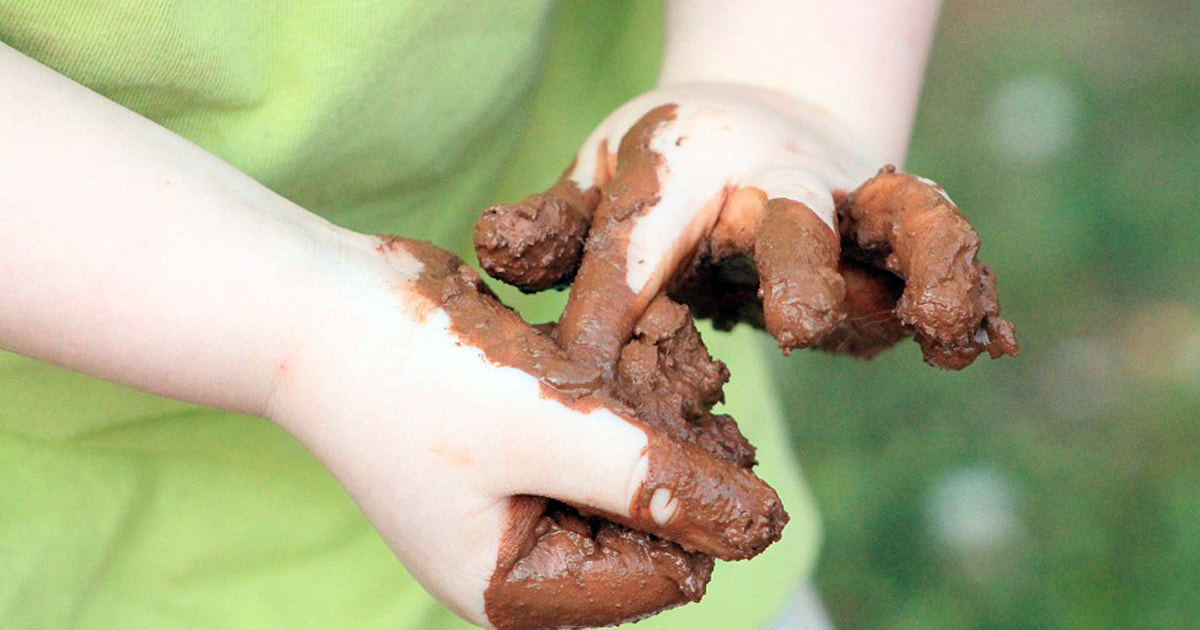

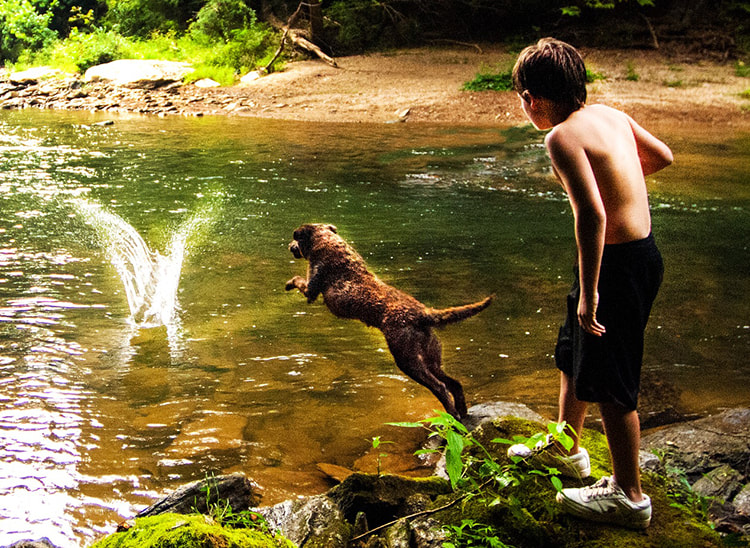
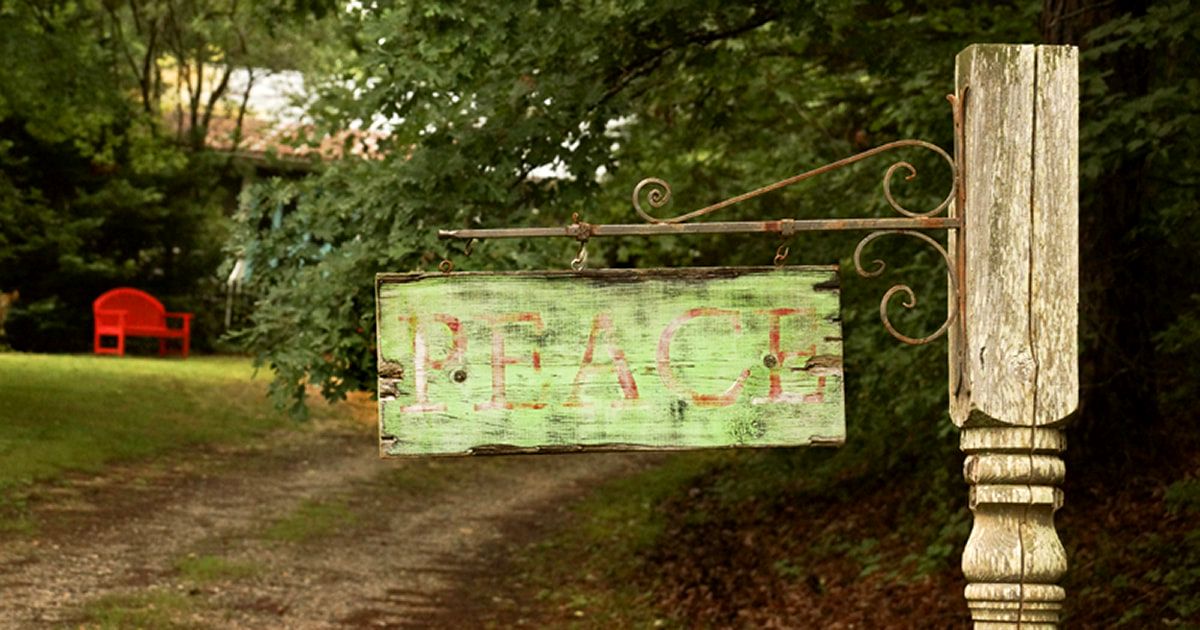

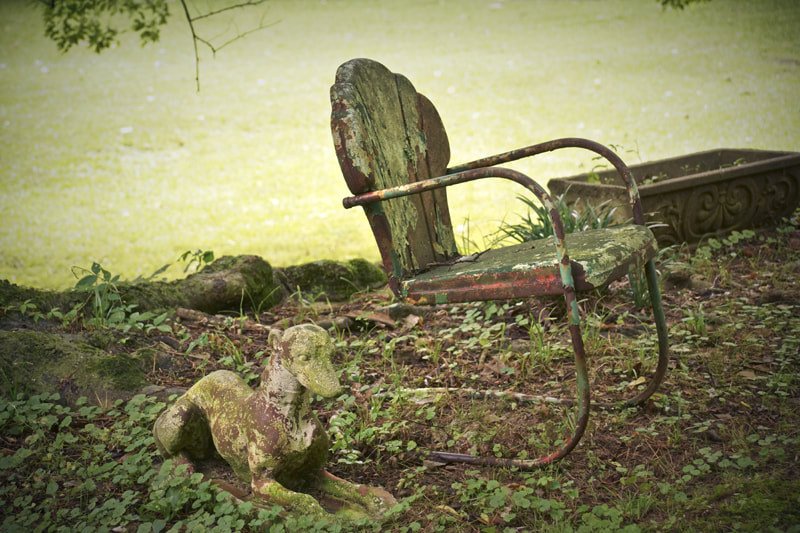
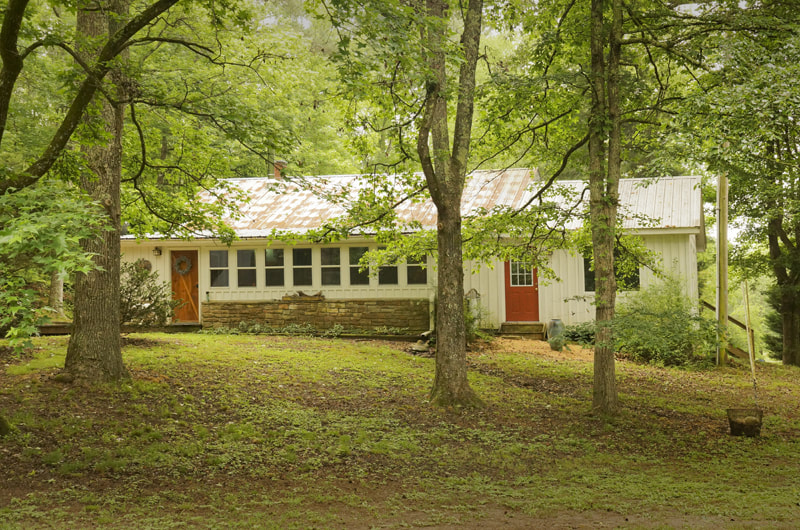
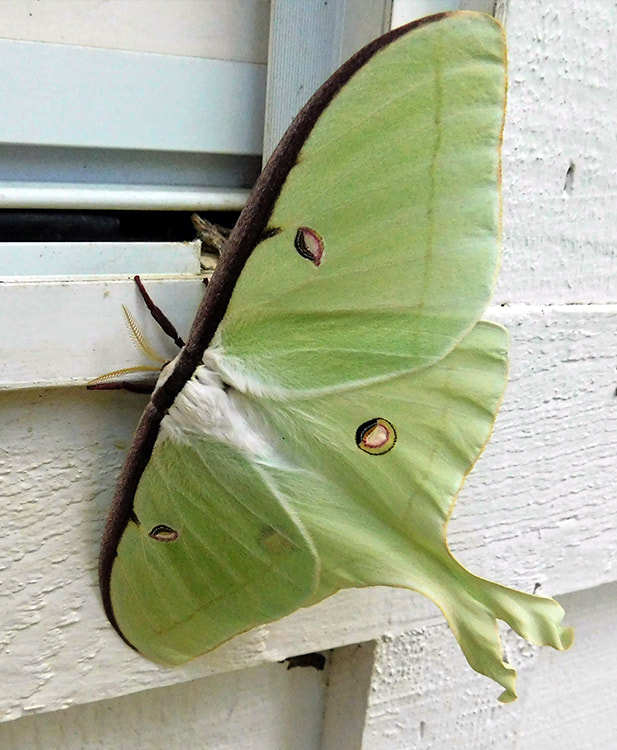

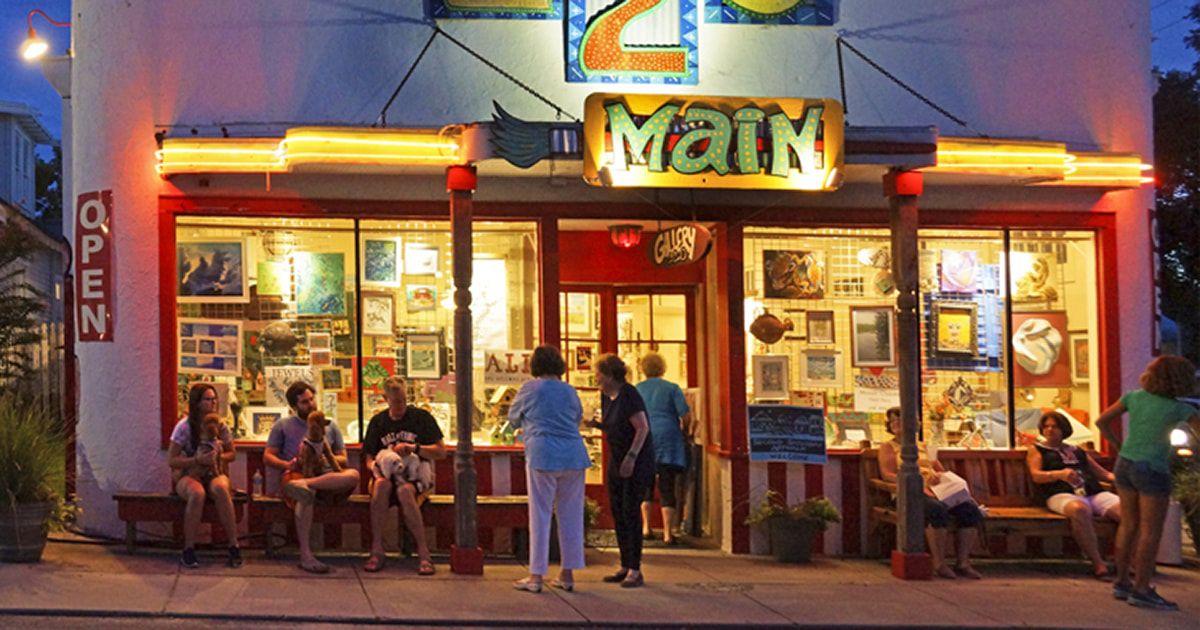

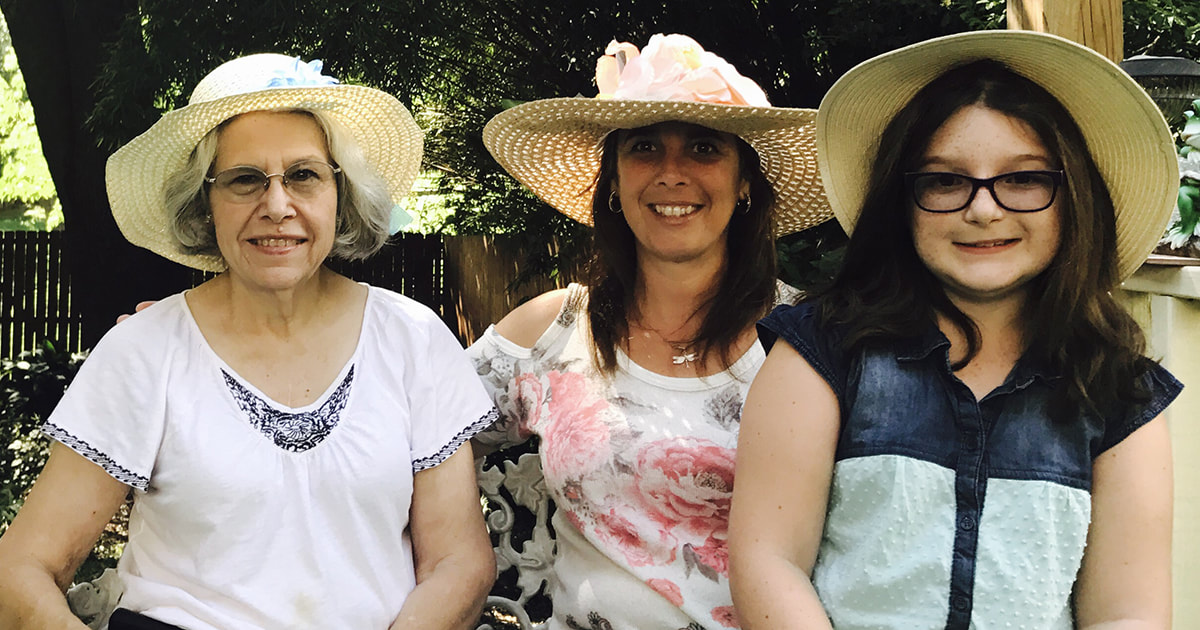
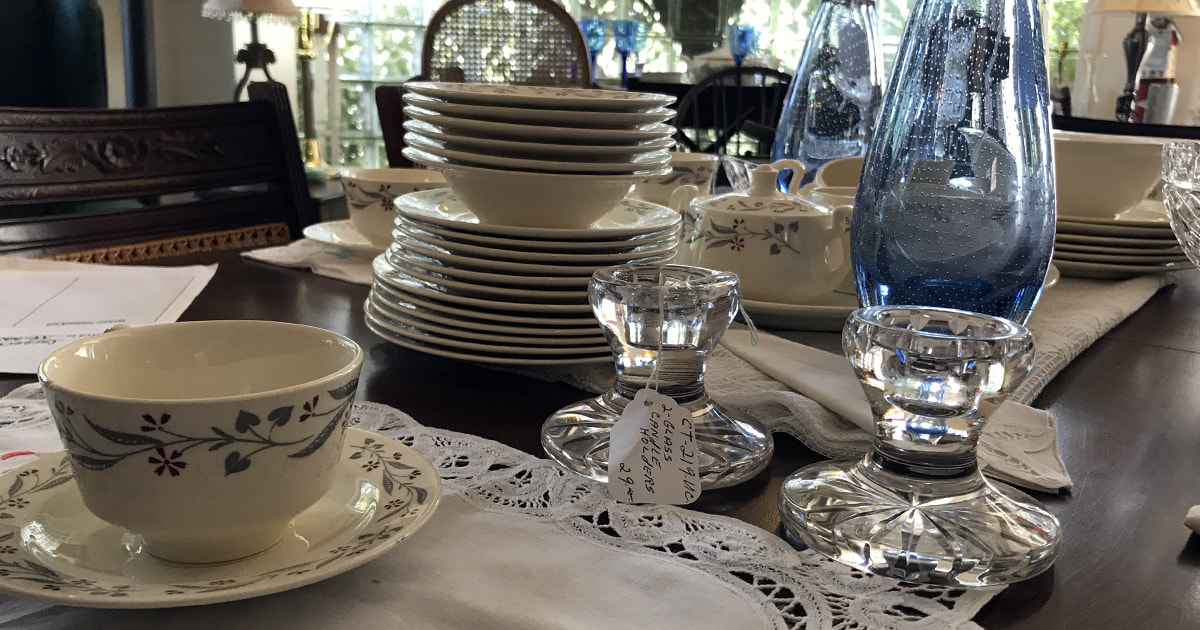

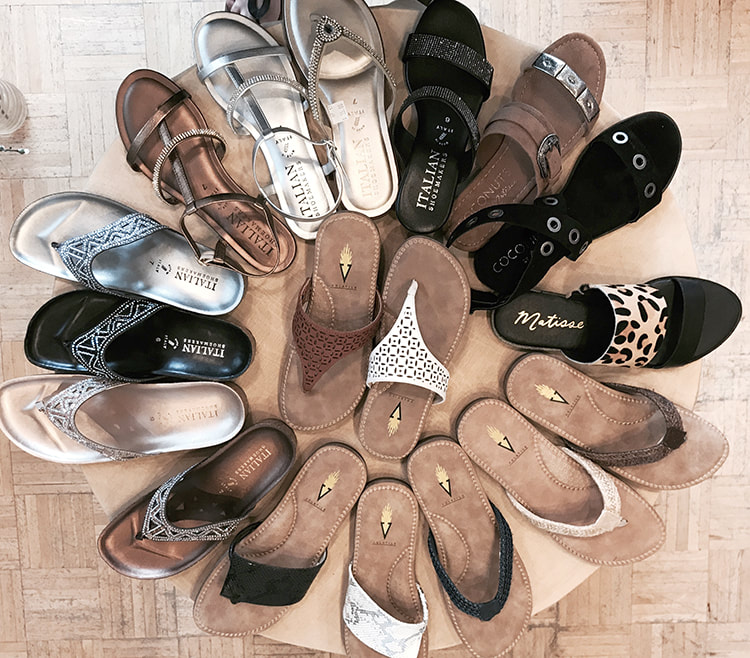
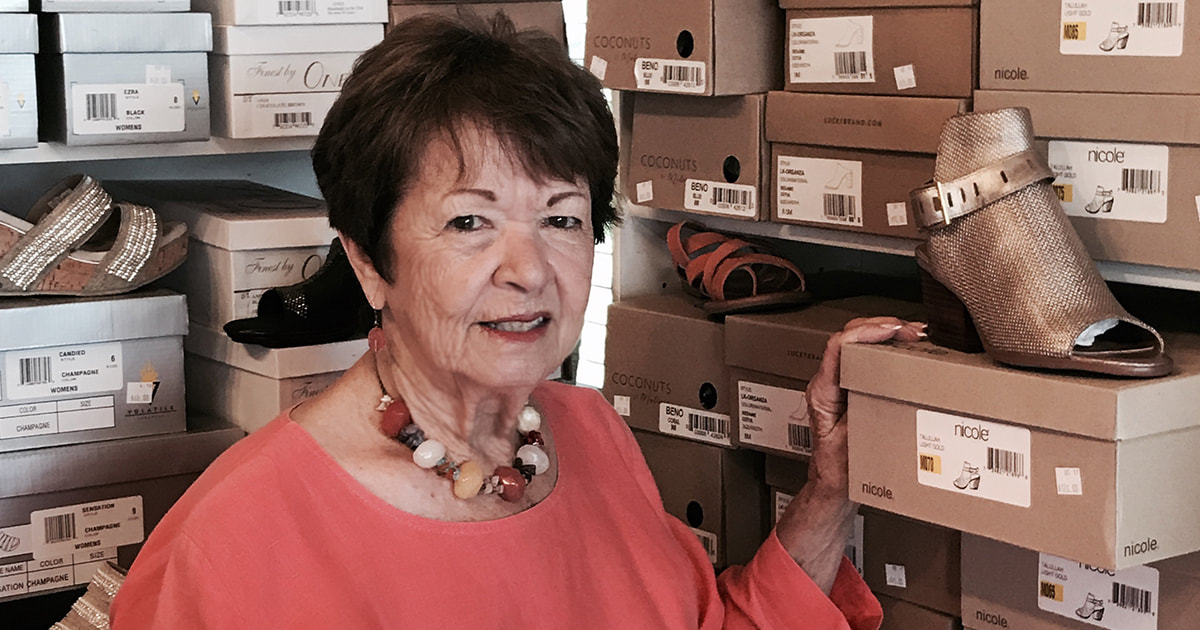
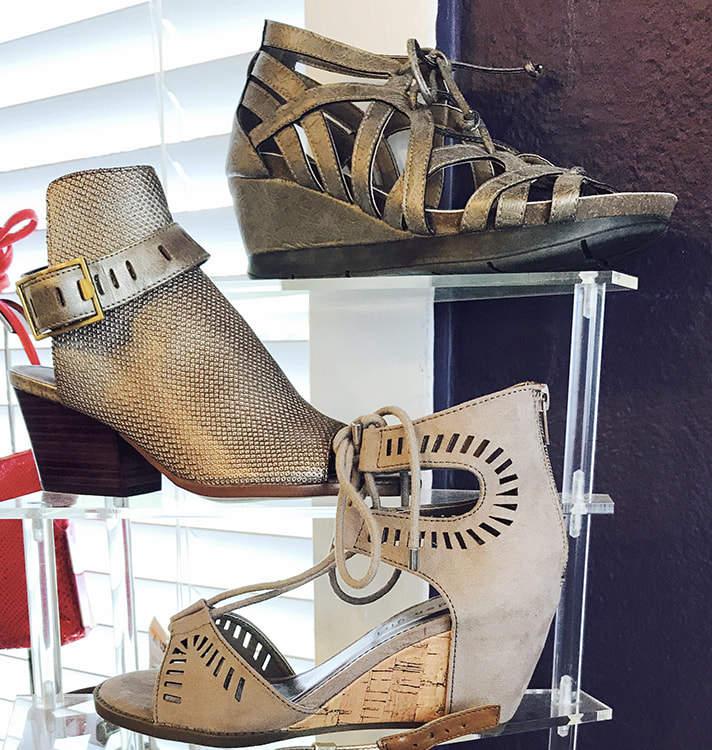
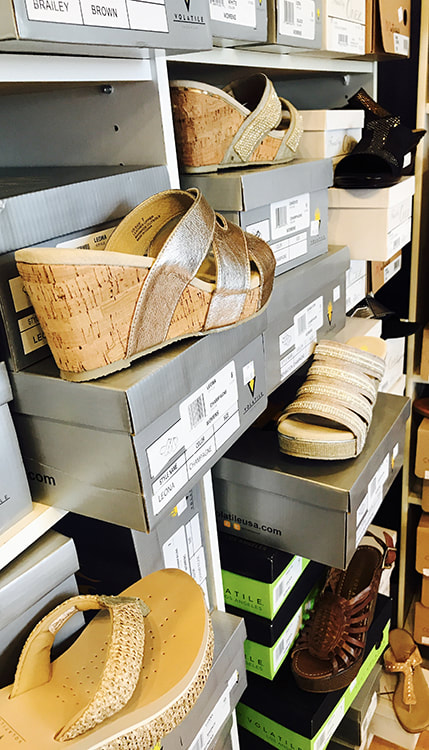
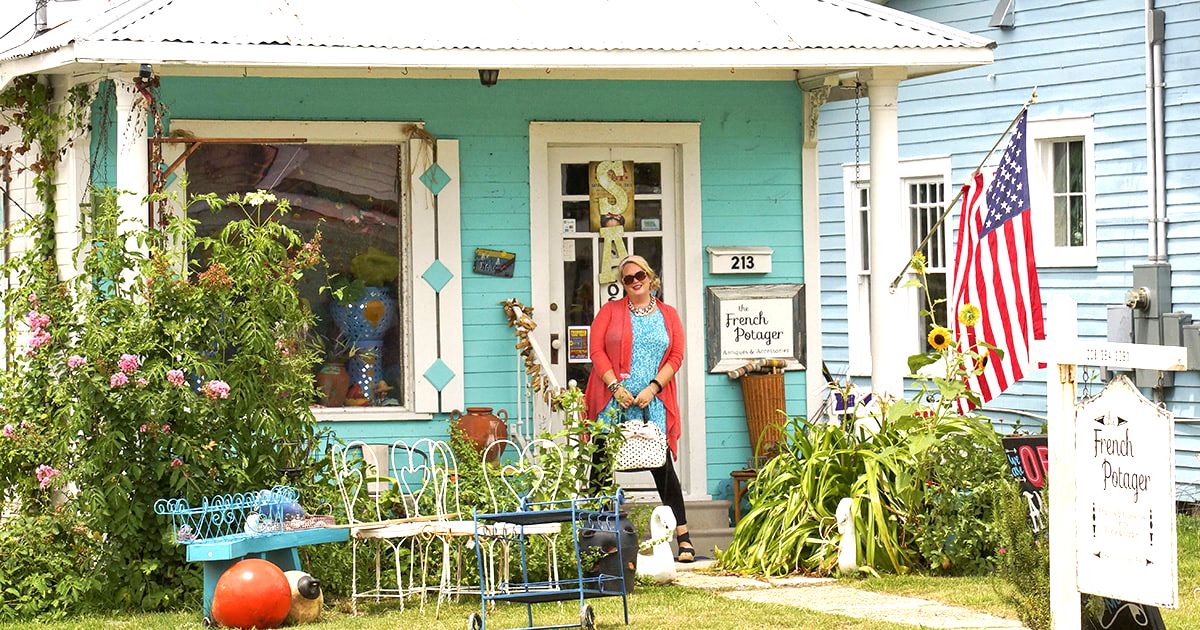


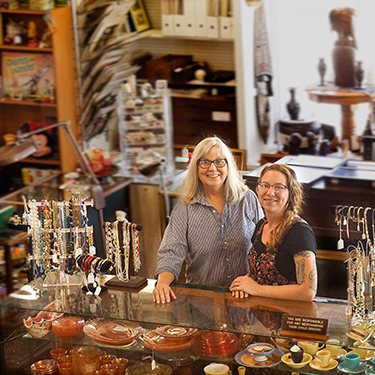
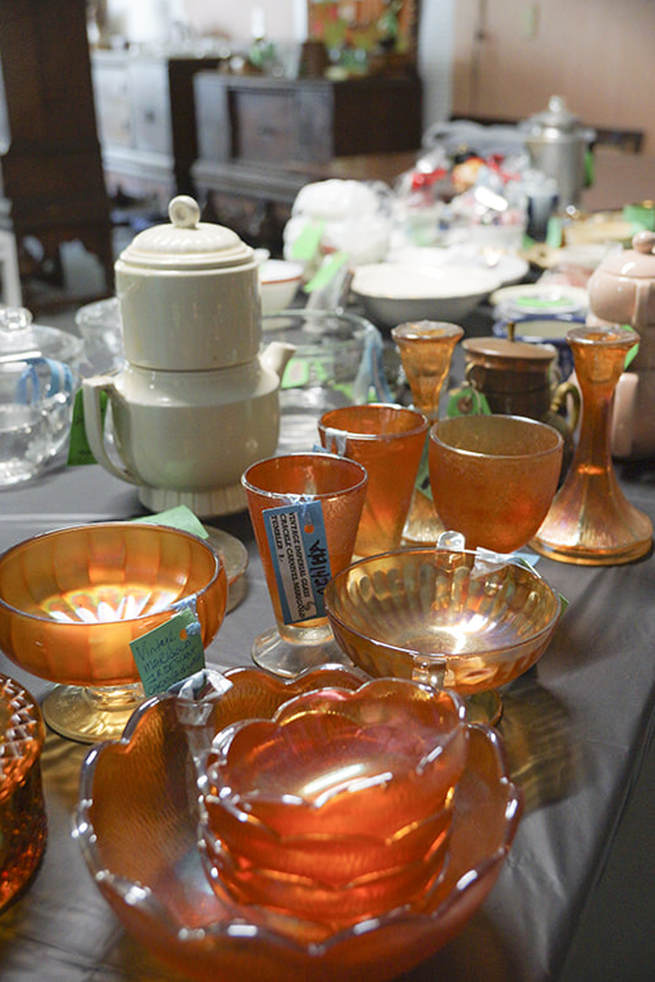
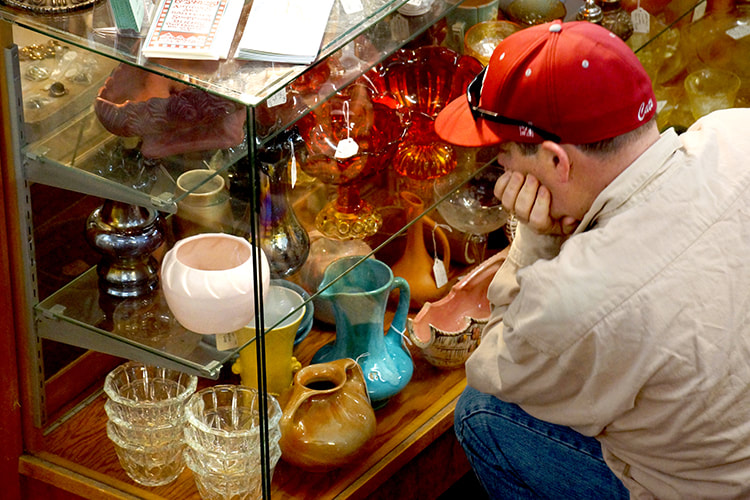
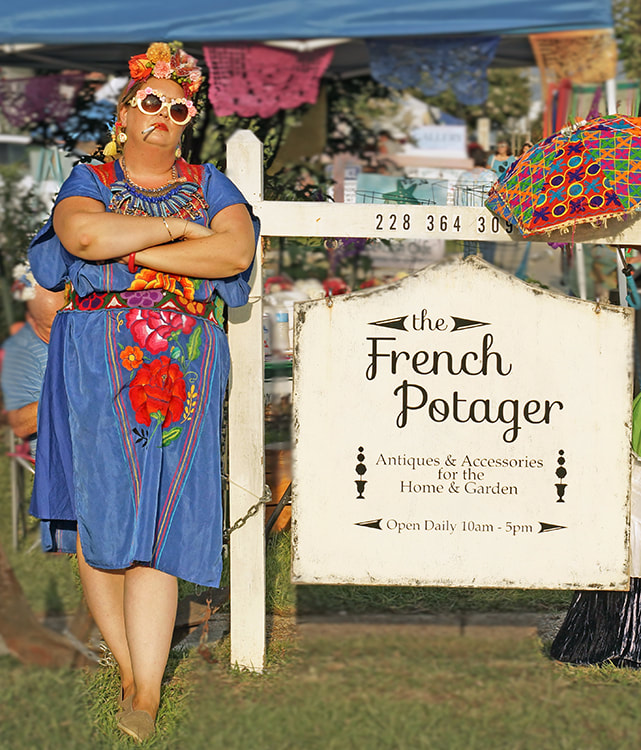


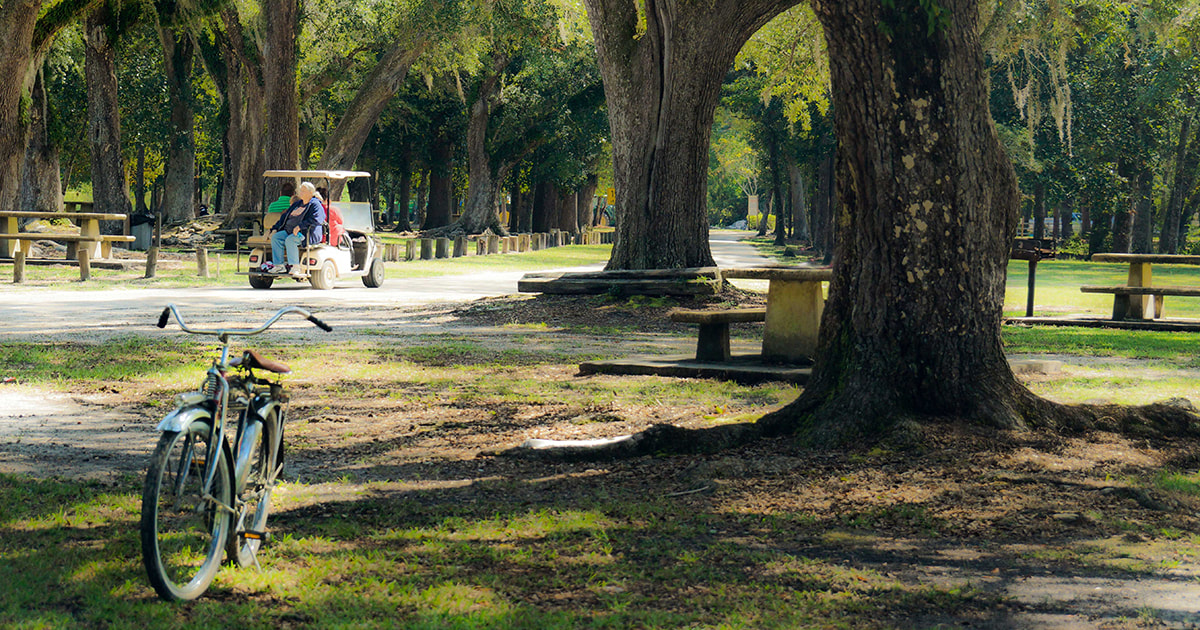




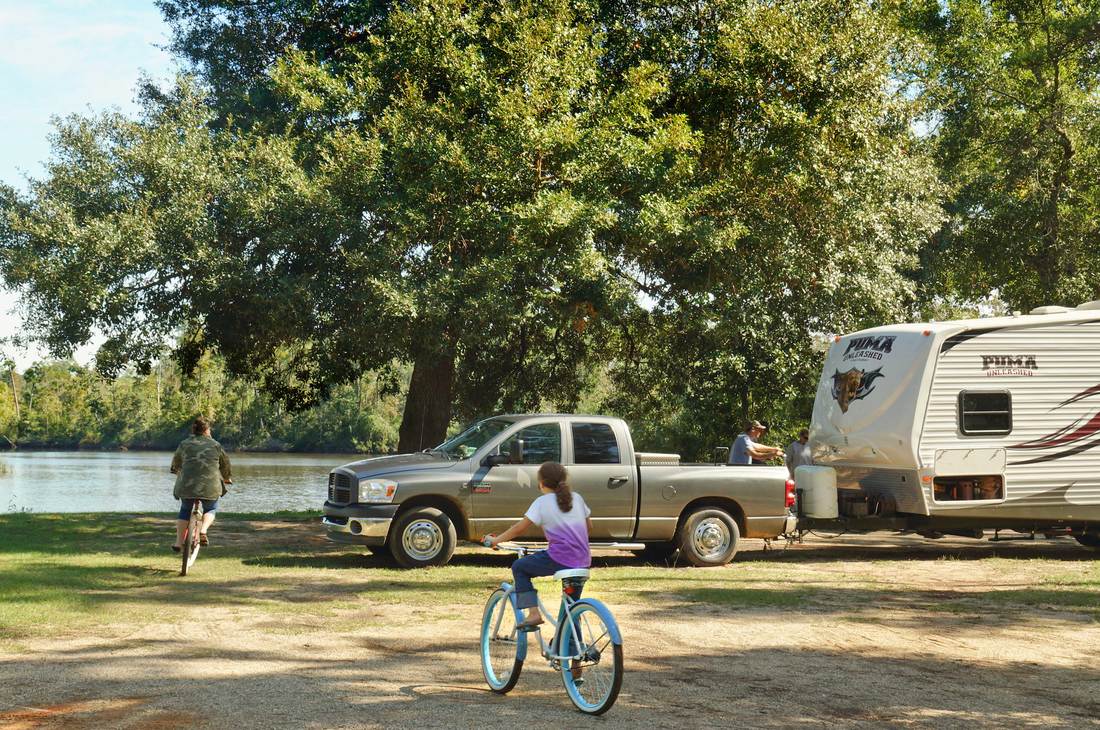
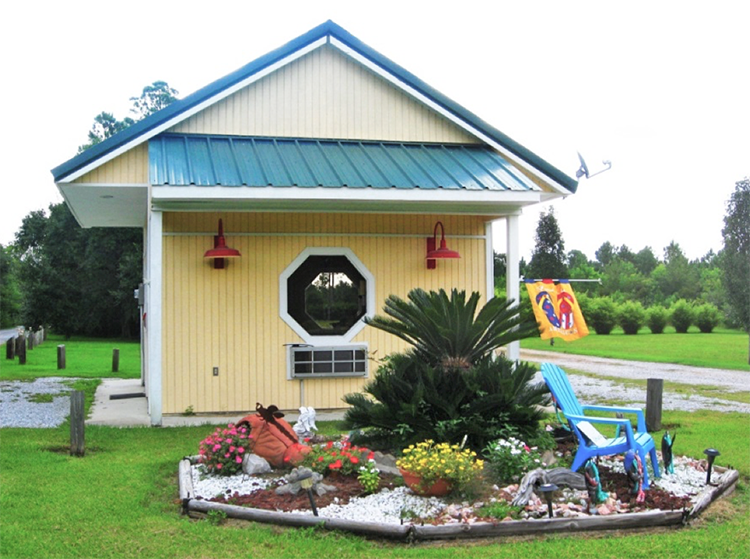
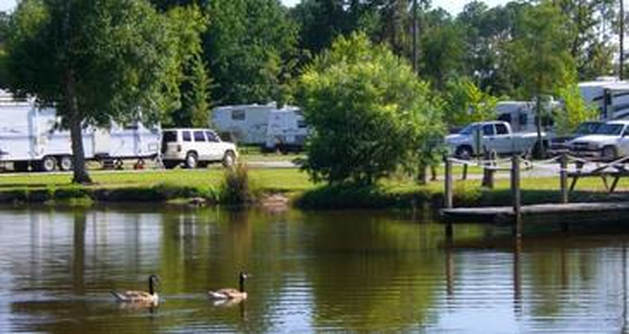
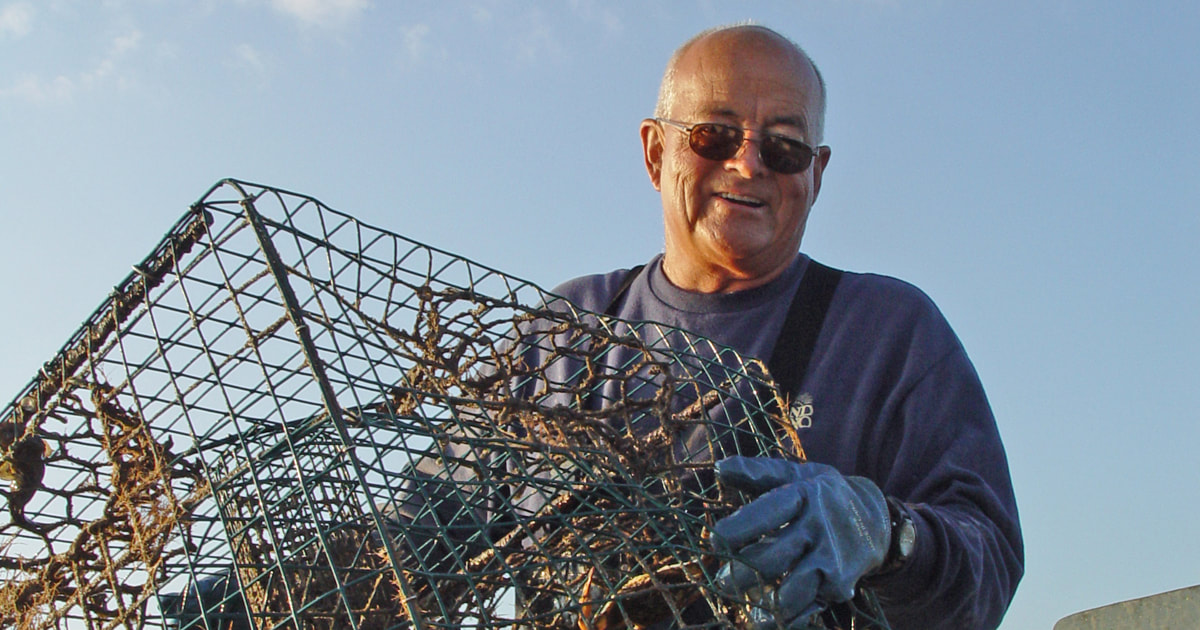
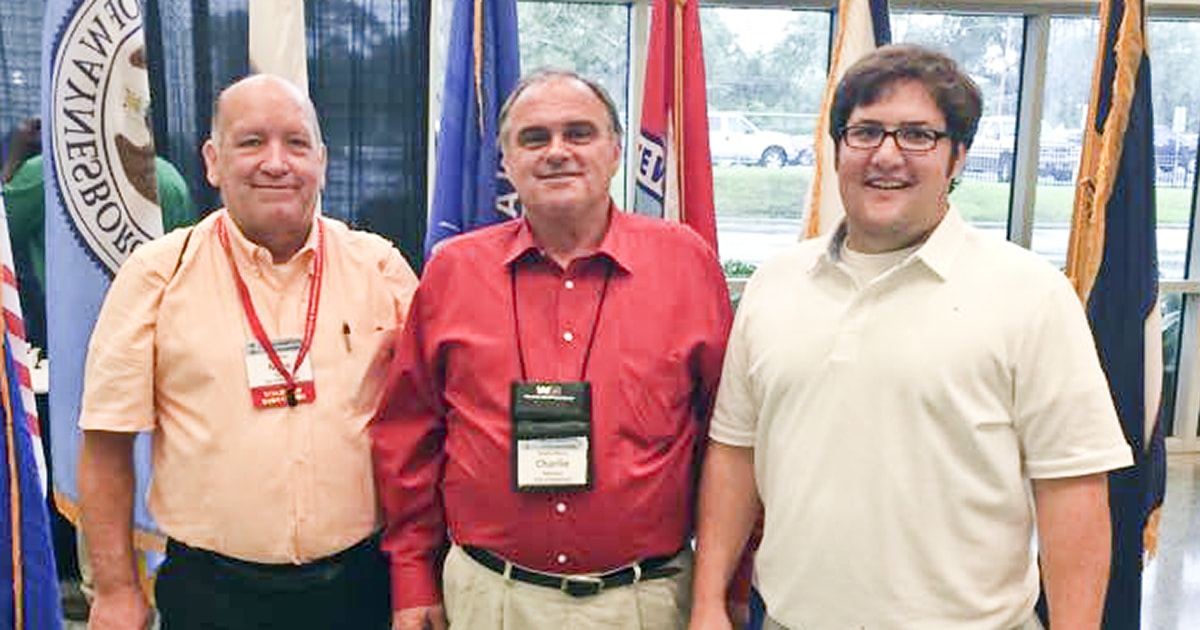

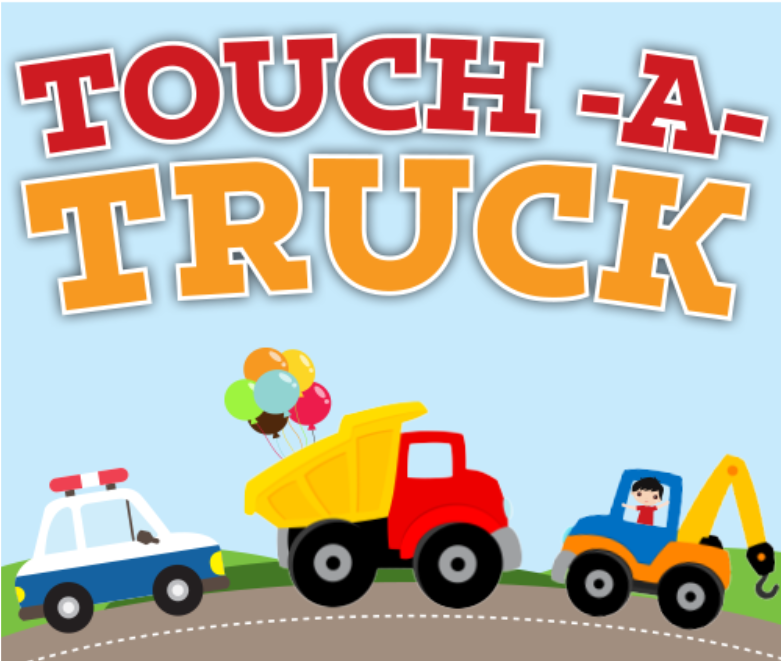
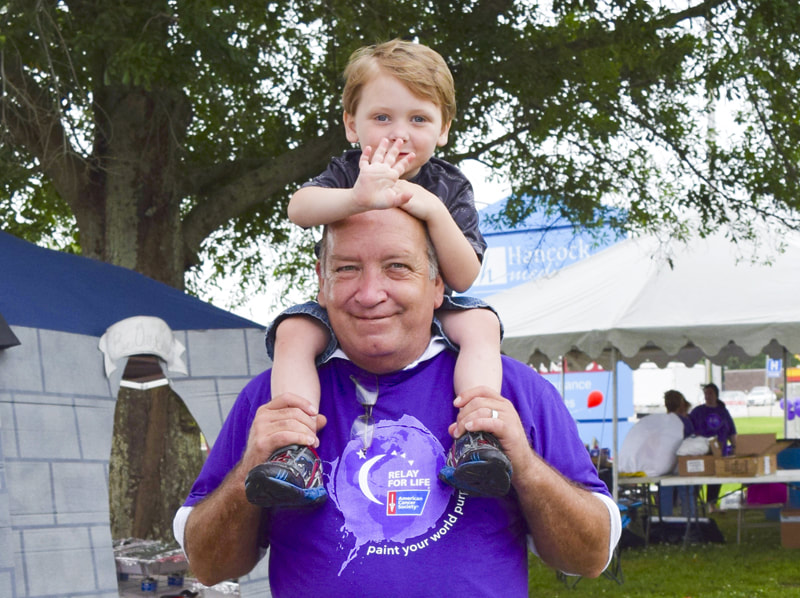
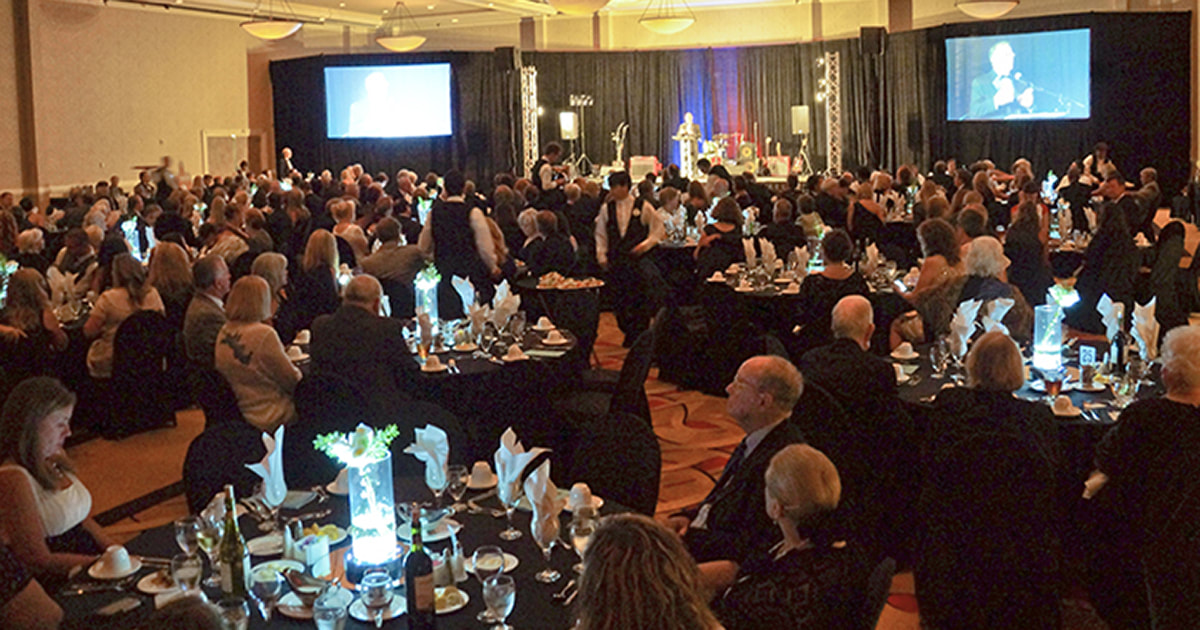
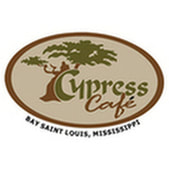
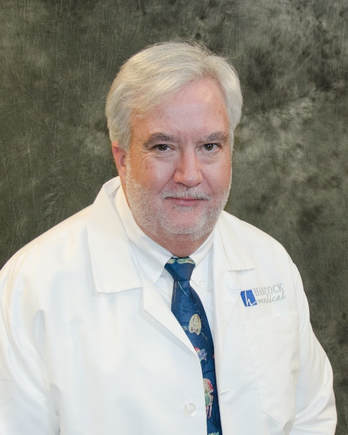
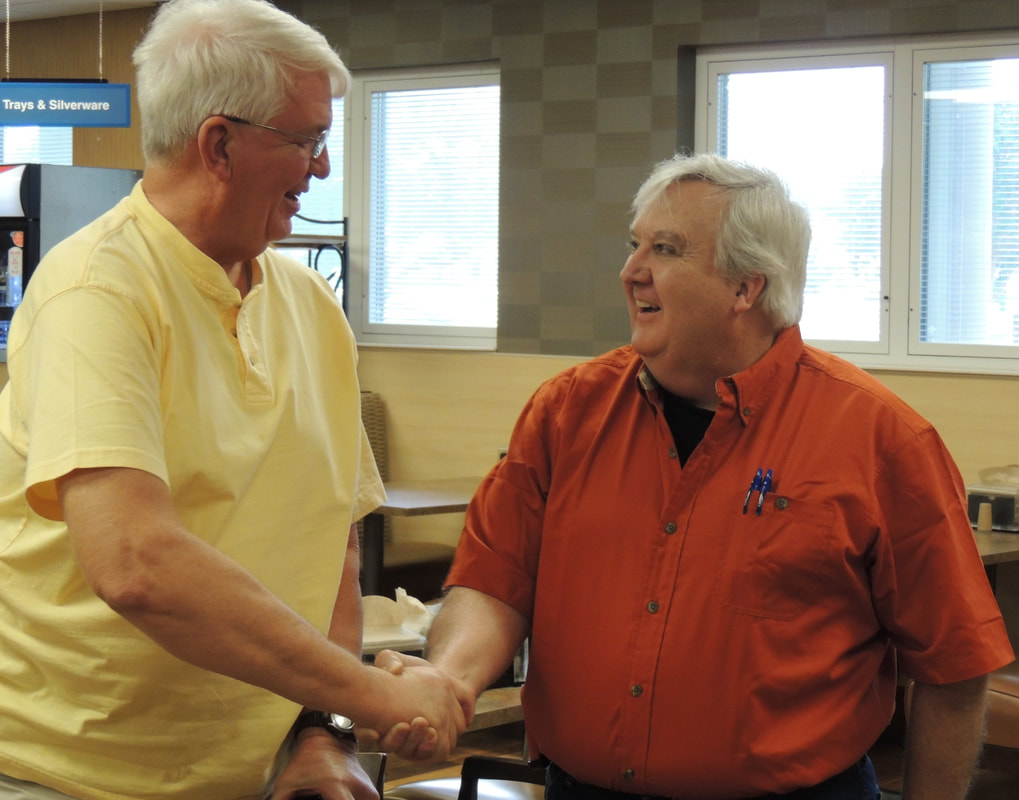





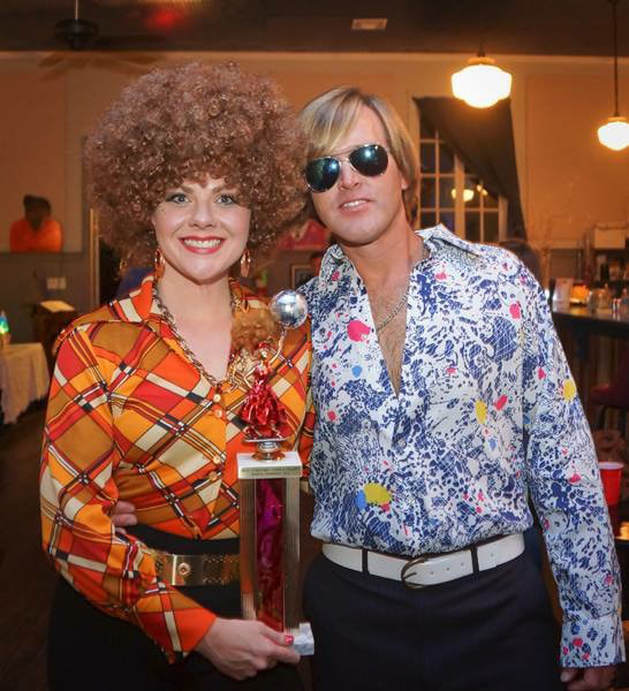
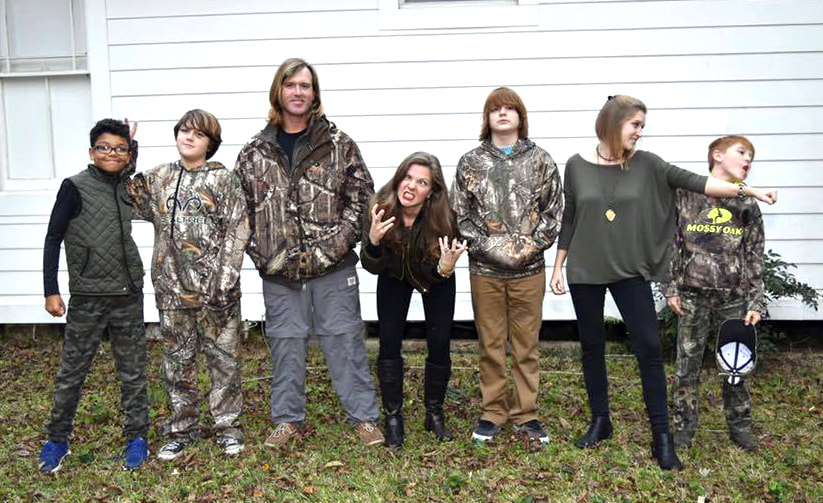
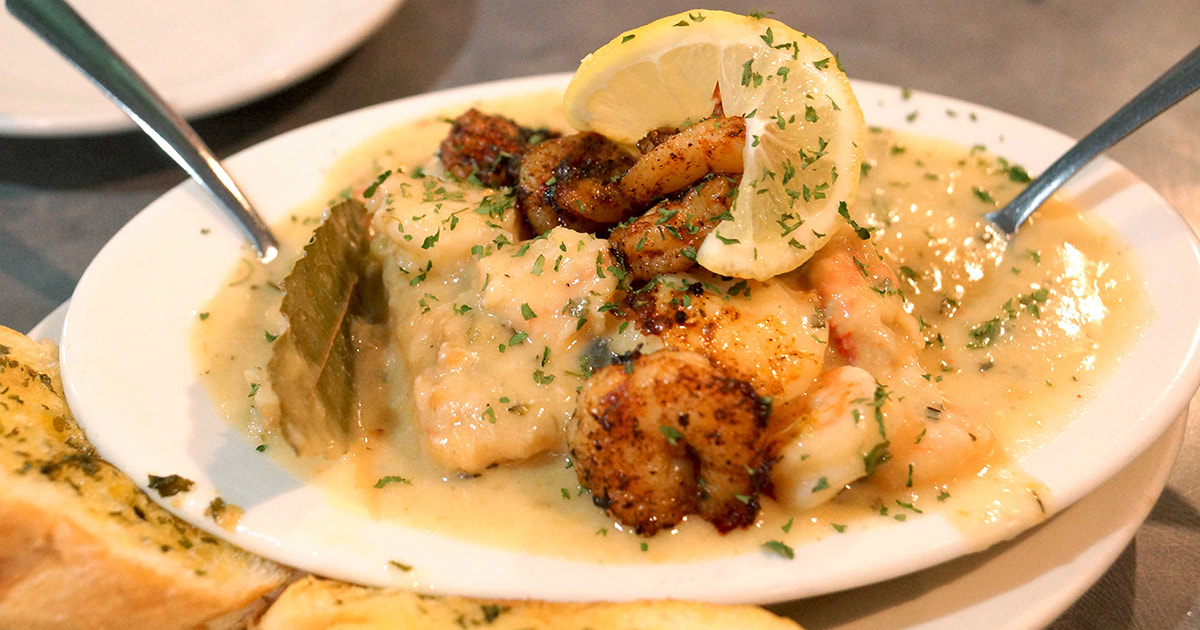
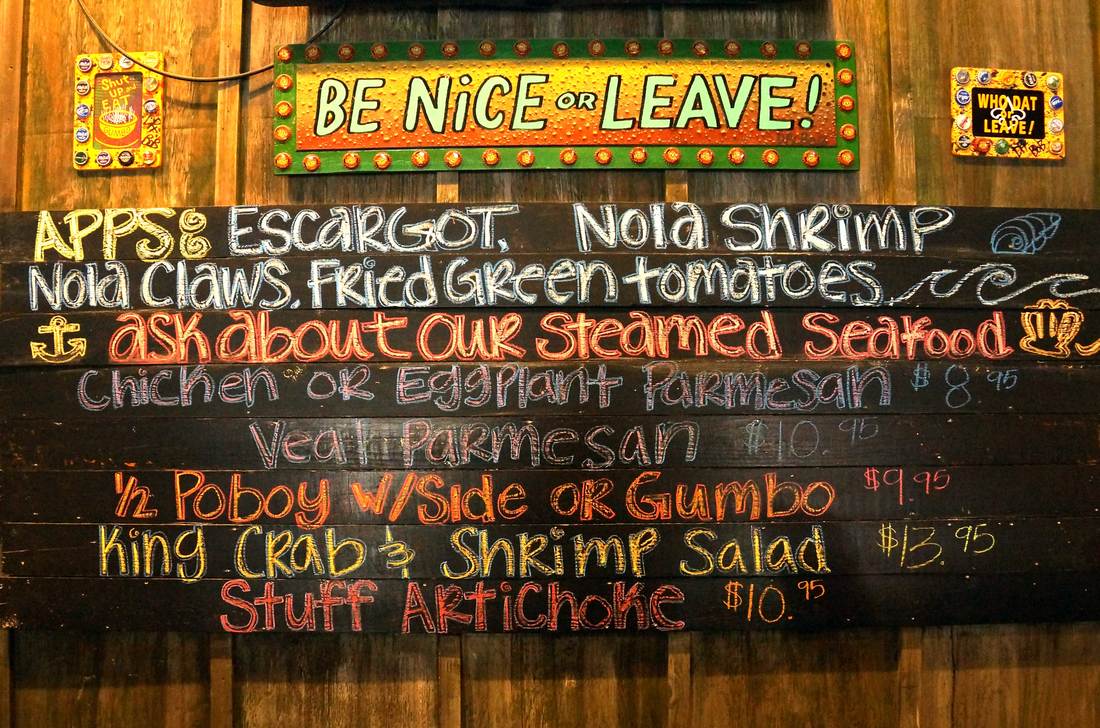
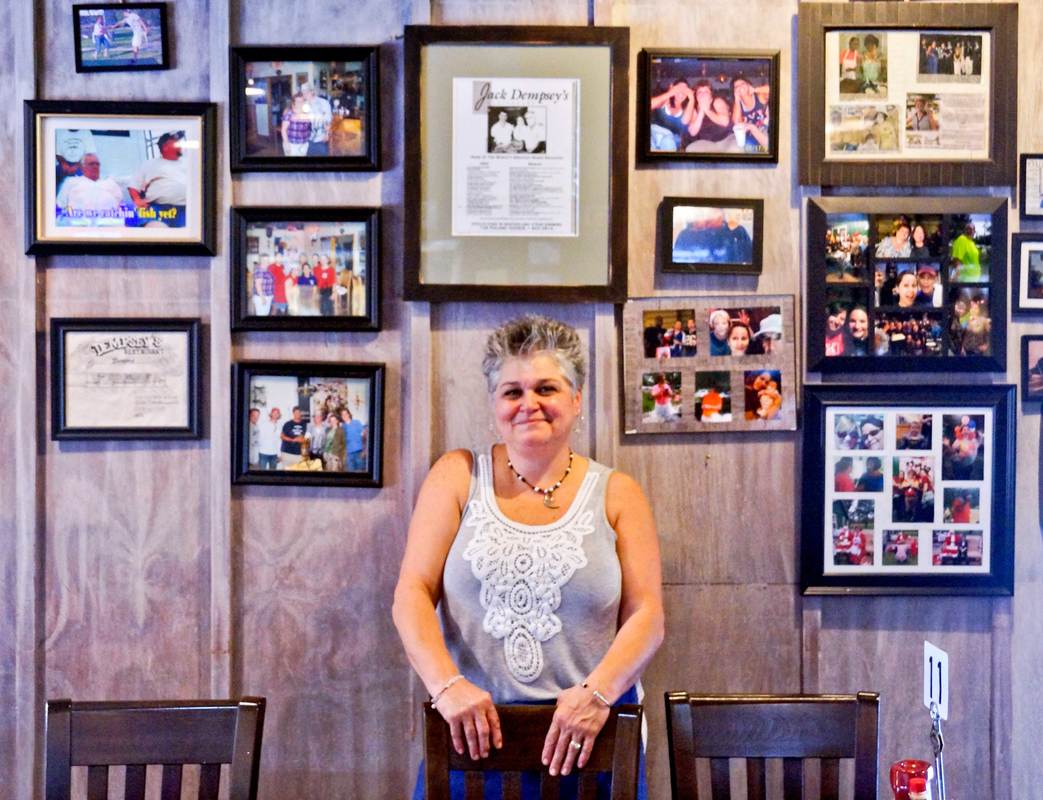
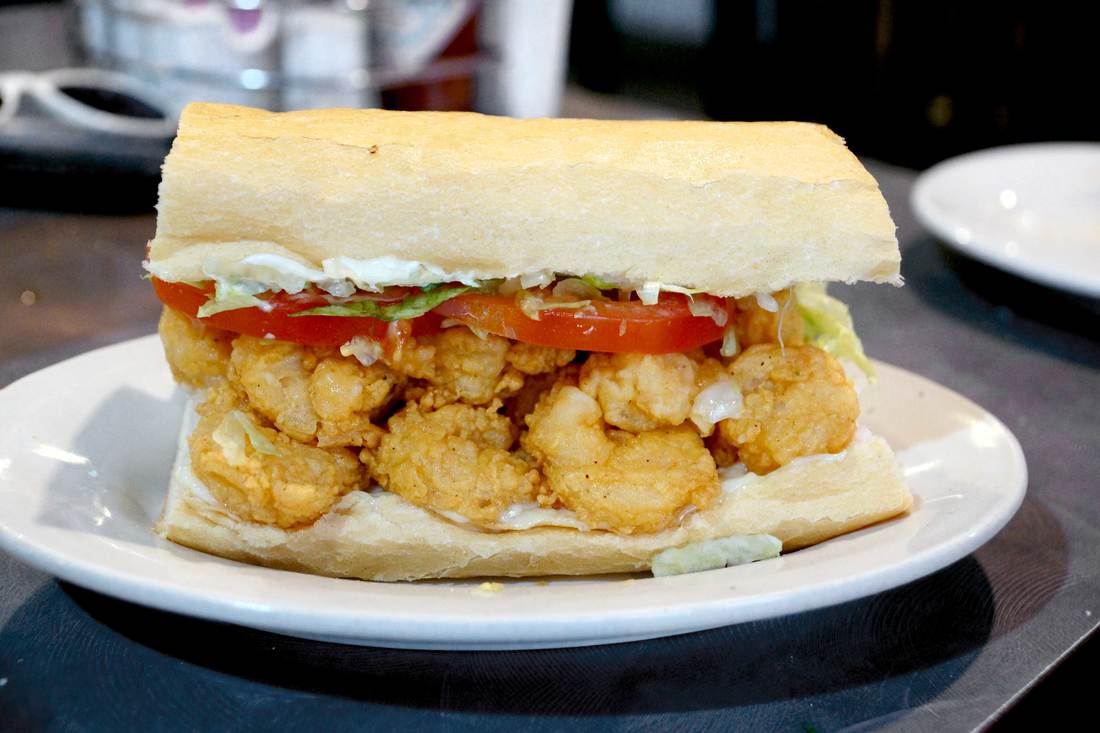
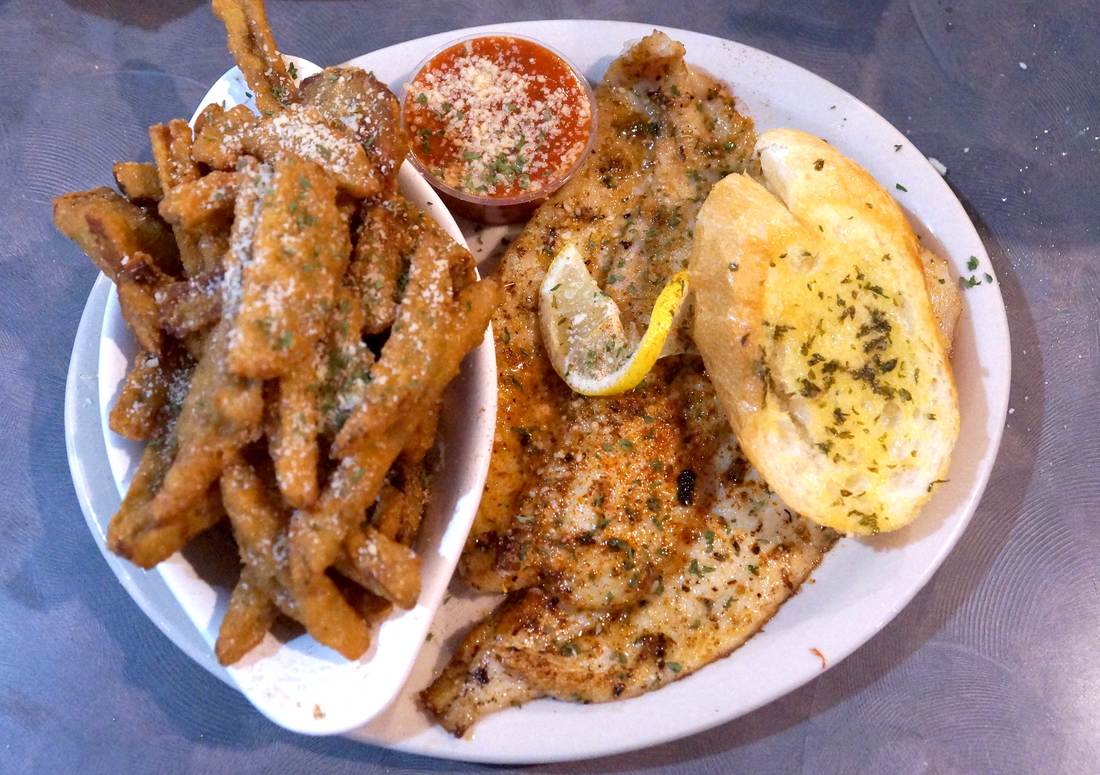

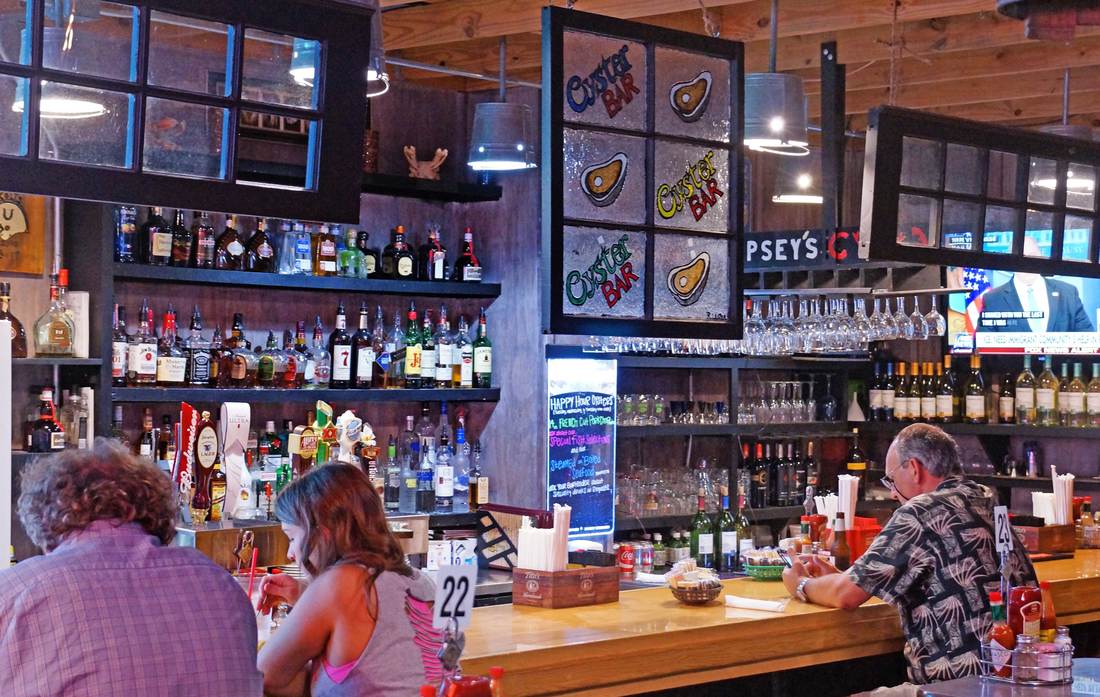
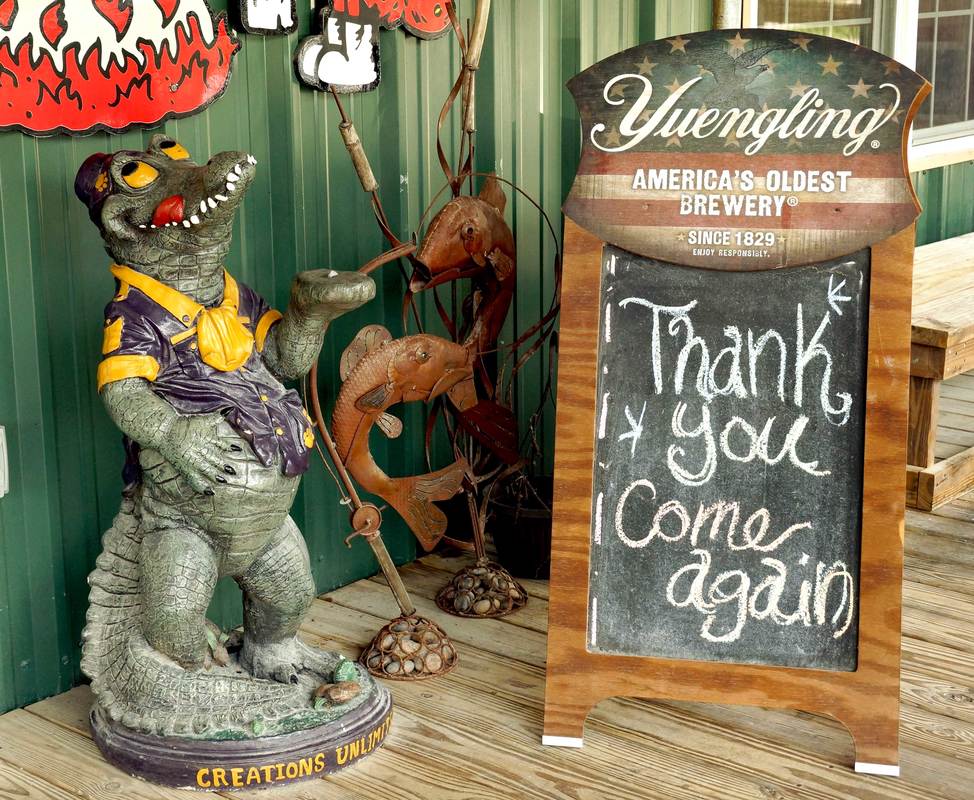

























 RSS Feed
RSS Feed























